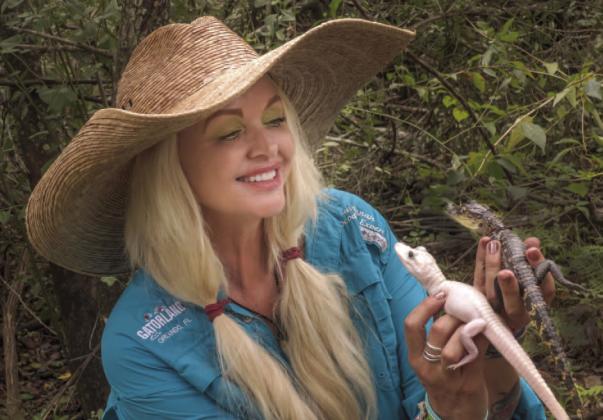Other rare Wild Florida albino gators make Osceola County home to special species
With now two rare species of alligators being bred within Osceola County, is it safe to call these parts “Rare Gatorville” now?
Gatorland announced Thursday the birth of an extremely rare leucistic white alligator, which the park is calling, “The rarest genetic variation in the American alligator.”
And ... it’s a girl! What’s her name? Well, Gatorland is asking the public to help name the white female and her normal colored brother by posting suggestions on the park’s social media, through Facebook, YouTube or Instagram.
“For the first time since a nest of leucistic alligators was discovered in the swamps of Louisiana 36 years ago, we have the first birth of a solid white alligator ever recorded from those original alligators. This is beyond rare, it is absolutely extraordinary!” said Gatorland CEO Mark McHugh.
According to McHugh, the new baby female leucistic alligator and her normal colored brother, born to parents Jeyan and Ashley, weighs 96 grams — just two-tenths of a pound —and is currently 49 cm (19 inches) long. She’s eating bites of raw chicken and specially-designed pellets made to supplement nutrition.
“These are incredibly special animals in the reptile world, and we are being very careful with their safety and security. We plan to have them on display early next year so guests can see them, learn about them, and fall in love with them like we have. For now, however, we continue to keep them safe where we can closely monitor their health and growth,” McHugh said So what makes them so rare? Leucism in alligators causes white coloration, but they often have patches or splotches of normal coloration on their skin. Without the darker skin pigmentation, they can’t have direct sunlight for long periods of time because they sunburn easily.
According to Gatorland, they differ from albino gators — Wild Florida south of St. Cloud has bred a family of those equally-as-rare alligators — which have pink eyes and a complete loss of pigment. Leucistic alligators also have blue eyes compared to the pink eyes of an albino alligator.




